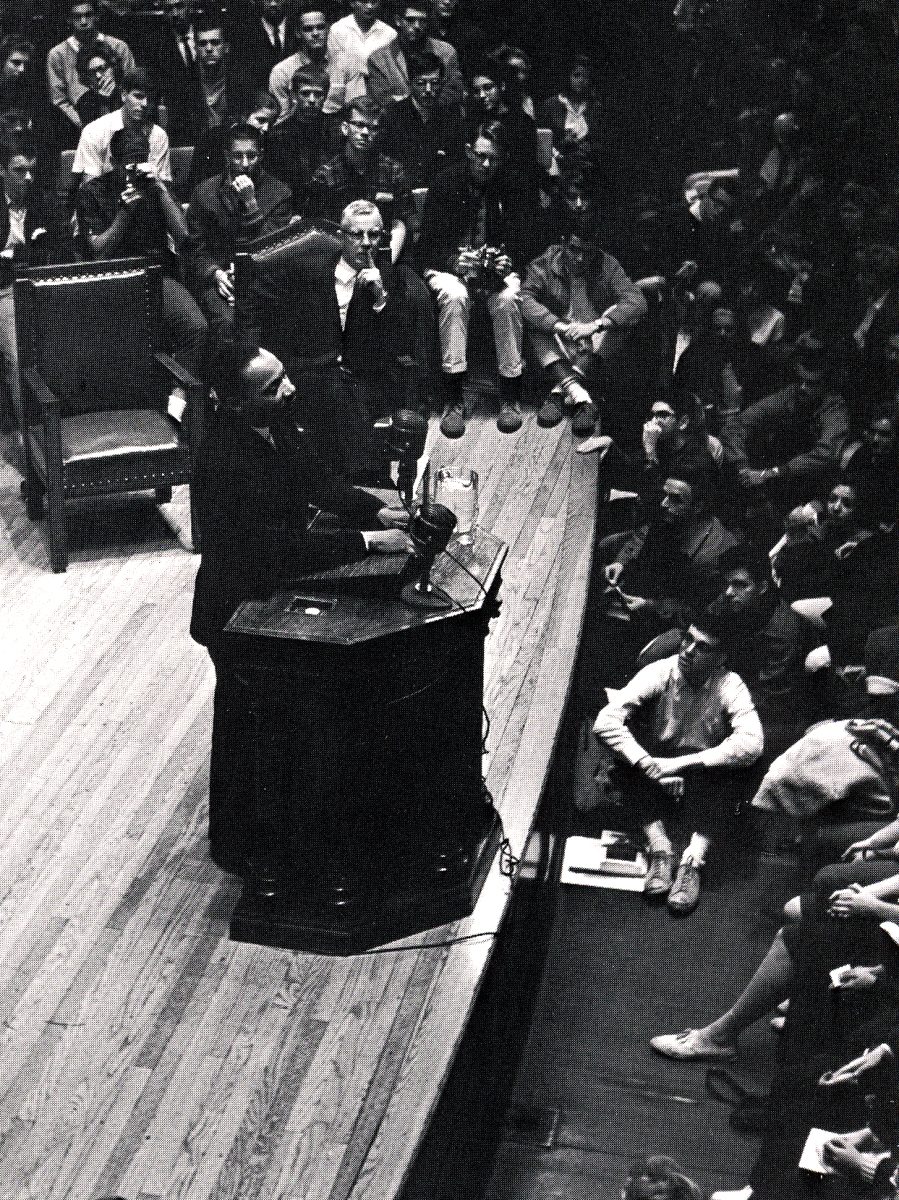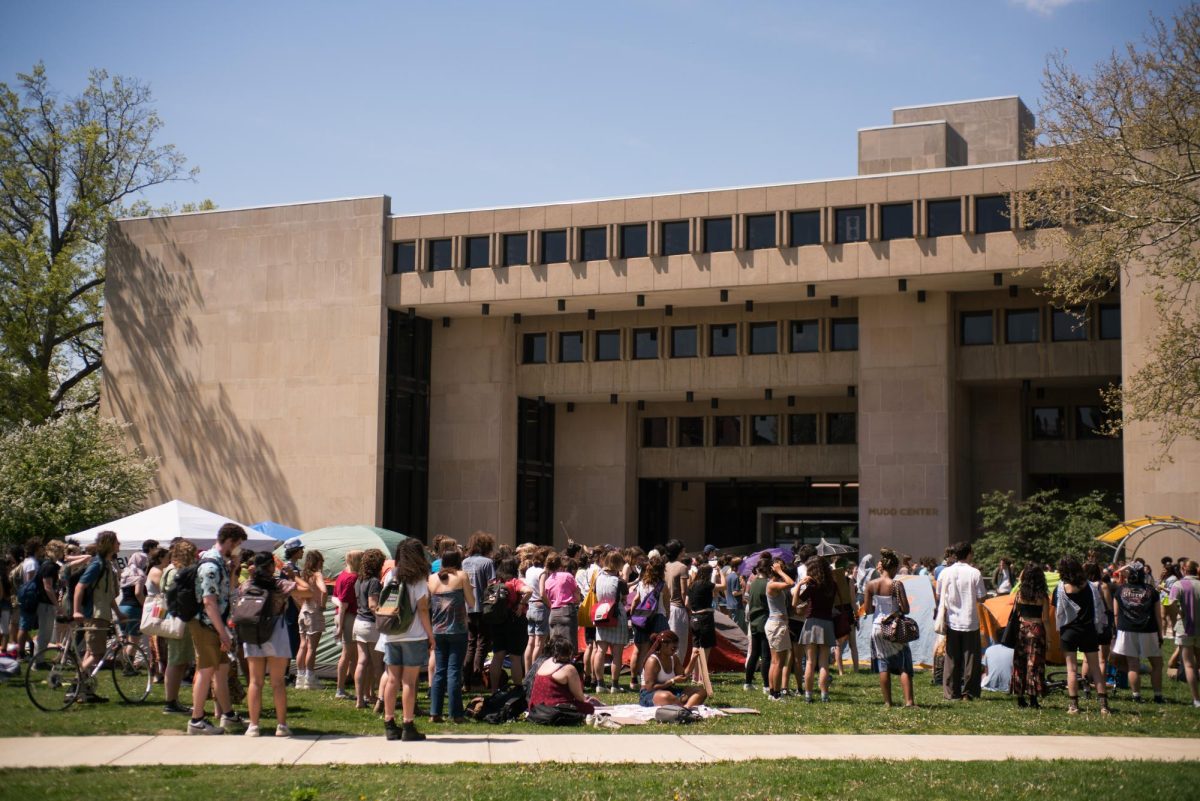Since Israel’s assault on Gaza began in response to Hamas’ attack on Southern Israel in October, at least 40,738 Palestinians have been killed, including almost 17,000 children. The international community writ large has recognized Israel’s unambiguous assault on Palestinians since Oct. 7 as an act of genocide. The International Criminal Court issued arrest warrants for Prime Minister Benjamin Netanyahu and Defense Minister Yoav Gallant. Despite this, under the Biden–Harris administration, the U.S. has made over 100 military aid transfers to Israel, including a recent $20 billion donation to the state earlier in August. Save for ineffective cries by both Biden and Harris for Netenyahu to de-escalate their assault and come to a ceasefire resolution, the official position of the U.S. government is one of unconditional support of Israel’s relentless destruction of the region of Palestine.
This is in accordance with a legacy of support for Israel from Western states, primarily the United Kingdom and later the United States — unconditional support for the state’s “security” whenever Israel initiates aggression against its Arab neighbors. There has always been pro-Palestinian pushback against this legacy throughout the Western world, but in the wake of Israel’s unrelenting post-Oct. 7 bombardment, the popular pro-Palestinian response in Western nations today is markedly different in its magnitude compared to previous iterations. For almost a year, people all around the world have ferociously protested Israel’s assault on Gaza since Oct. 7. More than Israel’s assault, progressive global citizens from all walks of life are questioning the dogma of ethnonationalism that Israel is founded on.
Outrage at our government’s complicity in Israel’s assault on Gaza has injected new life into a longstanding tradition of socialist and progressive political thought with respect to Palestine. This coincides with the upcoming 2024 presidential election, where Democratic Vice President Kamala Harris is running against the Republican former President Donald Trump. The weeks leading up to the 2024 Democratic National Convention were perhaps one of the more hopeful political moments in the history of the U.S.’ pro-Palestinian movement. Progressive voters leveraged their political power within the Democratic party to demand that Harris take a firmer, more humanitarian stance against Israel. In particular, progressives wanted Harris to support an arms embargo against the Israeli state. Hundreds of thousands of these progressive voters, who voted “uncommitted” during the Democratic primaries, carried a slate of 30 uncommitted Democratic delegates to negotiate with Harris and top DNC officials. For weeks, the uncommitted movement fiercely bargained for the DNC to at least allow a Palestinian-American to speak at the Convention. It seemed as though a Palestinian voice would be heard in a mainstream political establishment’s platform for the first time in American history.
Those efforts were denied; to avoid “controversy,” no PalestinianAmerican speaker made it to the podium at the DNC. Kamala Harris’ speech on the last day of the convention included that she would ensure that the U.S. military remains the most “lethal fighting force.” Nor has she budged on giving Israel military and fiscal support to “defend” itself, though she did pay lip service to the dire need of Israel to agree to a ceasefire resolution. It now becomes clear that the Democratic Party has decided to turn away from more “radical” voters and court the centrist cohort composed of voters who, consciously or not, are sympathetic to the Zionist movement.
Throughout this all, I am reminded of Dr. Martin Luther King’s “Letter from a Birmingham Jail.” That letter was a response to advice from moderate white Christian leaders, who called his demonstrations against the repugnant segregation in the Alabama city “untimely.” From before King’s time to the present, the centrist trope to wait — to defer “radical” action that may rock the boat too much — has been a mainstay of mainstream politics. His words in response to that moderate cry of “Wait!” remind us of our universal obligation as global citizens to stand against injustice anywhere. Over these past 11 months, this movement for Palestine has perfectly embodied those words. Much like how King was advised by white Christian leaders from the South to cease his anti-segregation direct action in Birmingham until the timing was right, the Democratic establishment refused to heed uncommitted progressives’ demands — presumably until Harris is in office. King knew as well as most uncommitted progressives do: the time is always right when it comes to demanding justice. Progressive voters are now faced with a question, one that very well may decide the outcome of this presidential election: Should progressive voters who want to see an arms embargo compromise on Kamala Harris even when she has refused to work with them?
The short answer is yes.
Let’s compare a potential Harris and Walz administration to a potential Trump–Vance administration. It is easy to see the dramatically contrasting scenarios in each candidate’s potential term in office. Clearly, Kamala Harris has not been responsive enough to the voices of progressive voters. The Council on Foreign Relations states that her current administration with President Joe Biden has given a total of over $250 million in military aid to Israel. At the same time, it is telling that the uncommitted delegates were working within the Democratic Party, rather than with Republicans. Slate interviewed several Palestinian-American activists that were key to this uncommitted movement’s progress.
“When President Biden was at the top of the ticket, they weren’t talking to us at all,” Layla Elabed, one of the co-founders of the movement in Michigan, said to Slate.
It is clear that the Democratic Party knows that the tide will continue to turn toward more concrete legislative policy against heinous Israeli aggression.
“I’m incredibly disappointed and embarrassed to be a member of the Democratic Party,” Elabed said. “But it doesn’t mean I’m going to just leave the Democratic Party.”
To contrast, a second Trump administration would be catastrophic to Palestinians and Middle Eastern geopolitics writ large. Trump’s term was one of the most hard-right, conservative administrations in support of Israel in recent history. It moved the U.S. embassy from Tel Aviv to Jerusalem, a city that holds over 360,000 non-Israeli citizen Palestinians. We unilaterally recognized Israeli sovereignty over a city that Israel seized from Jordan during the 1967 Six-Day War and has been hotly contested ever since. Trump’s administration also recognized Israeli sovereignty over Golan Heights — yet another occupied territory that Israel seized during the Six-Day War from Syria. These decisions were unprecedented. The U.S. broke from the international community’s consensus of denying Israel’s sovereignty over both locations, and this majorly upset the already tenuous relationship between the Arab world and Israel.
In the twilight of Trump’s term in office, he also brokered the Abraham Accords. Under the guise of religious tolerance within the Middle East, and absent any Palestinian representation during these negotiations, the Abraham Accords normalized Israeli relations with Bahrain, the United Arab Emirates, Saudi Arabia, and Sudan. The Accords were completely counter to the public majority of each Arab country involved in this deal, as they weren’t willing to sideline Palestinians as easily as their leaders were. Geopolitical analysts cite the Abraham Accords — how they sidelined the Palestinian people altogether for “peace” in the Middle East — as one of the main factors that led to Hamas’ Oct. 7 attacks in the first place.
More recently, Trump responded to student protests at college and university campuses all across the nation.
“If you get me reelected, we’re going to set that movement back 25 or 30 years,” Trump said to his donors.
“Any student that protests, I throw them out of the country… There are a lot of foreign students,” Trump said, according to The Washington Post. “As soon as they hear that, they’re going to behave.”
Even from a vantage point disconnected from Palestine, it is concerning to hear Trump’s expressed disregard for our constitutional right to free speech on our college and university campuses. With Trump in office, expect to see a full-fledged assault on the right to free speech, peaceful protest, and civil disobedience.
From both his presidential record and his recent statements about the latest episode of popular unrest, Trump demonstrates a dangerous lack of respect for the true weight that Palestinians hold in the Arab world. With this fundamental misconception of the geopolitical landscape in the Middle East, Trump is a grim specter for all those interested in Palestinian liberation and, ultimately, peace in the Middle East.
Dr. King’s letter stood against deterring any action that a moderate deems “radical.” This piece is not a call for us to do so, but rather a call for us to fight for justice in a manner that is most strategic and prudent. It is not a question that both sides of the U.S. political establishment — Democratic and Republican — firmly stand to support the Israeli state, but there are stark and meaningful differences between the two-party presidential tickets as we move into 2025. As it stands right now, we are forced to participate in a binary slate of candidates, and we must make what is, in this context, the right choice. If we can cast our bets, it would be on Democratic leaders, not Republican leaders, to eventually capitulate to ceaseless protests against funding Israeli war crimes. These positions are dead in the water under a Trump presidency. How many more innocent children would die, lose limbs, succumb to needless communicable diseases like polio, during his administration? When those stakes are on the table, is it responsible to abstain from voting?
This issue doesn’t exclusively pertain to Palestine, either. Immigration, global warming, and social welfare are all flashpoint issues that have justifiably alienated progressive voters from embracing Vice President Harris in her presidential bid. As questionable as Harris’ record has been as the second-in-command in the current administration, it is undeniable that her basic political commitments and alignments are exponentially less dangerous than her opponent. There is a difference between a president who understands the nuances of immigration for what it is — families escaping political turmoil in pursuit of the best possible quality of life — and a president whose rhetoric equates Global South migrants with rapists, murderers, and barbarians. To be quite frank, this latter kind of rhetoric is very much in line with how the Zionist factions of Netenyahu’s administration talk about Palestinians. These kinds of differences will materialize with serious consequences for communities all across the globe. Neither candidate offers a radical progressive agenda. That does not mean that younger progressive voters do not have a responsibility to make the best choice possible. Perhaps if MLK was with us today, he would have written a different letter.











